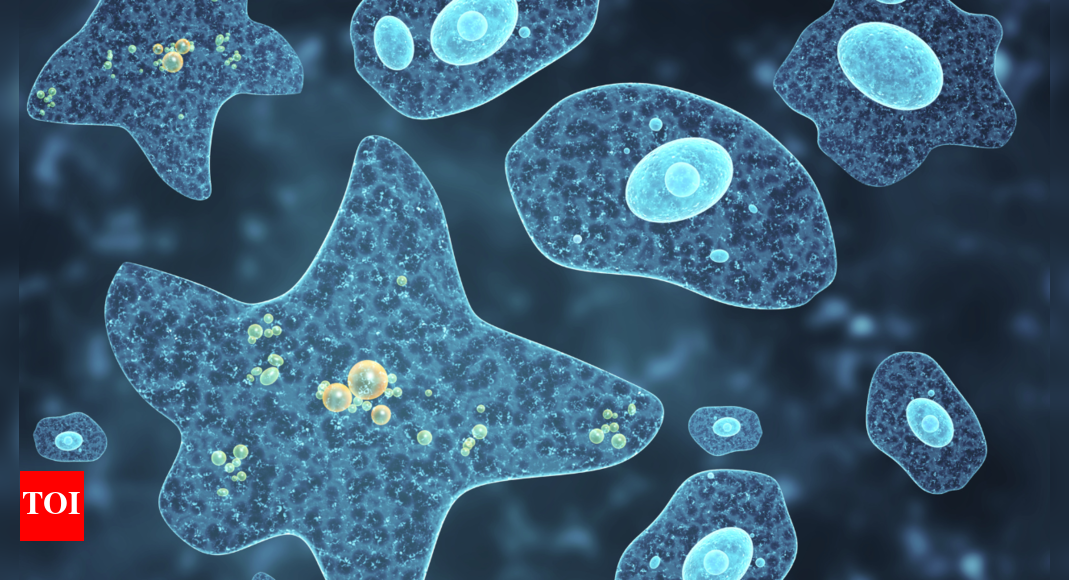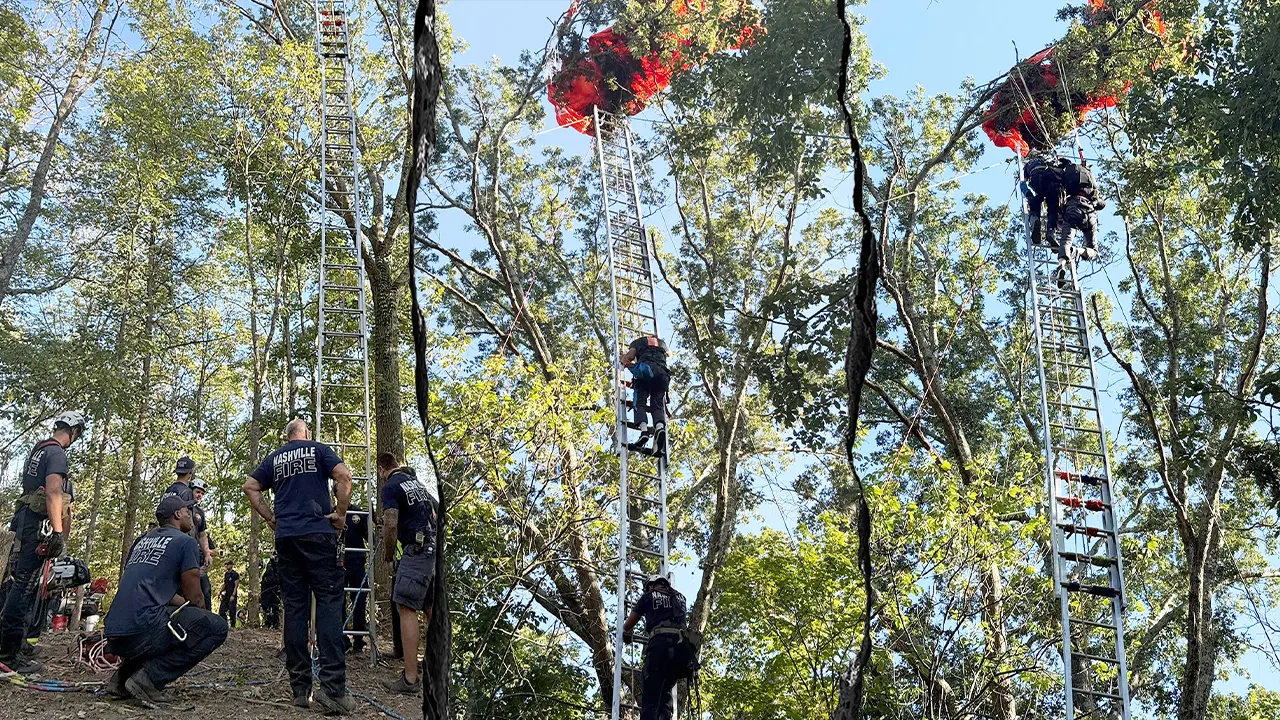Brain Eating Amoeba: 69 confirmed cases, 19 deaths in Kerala due to brain eating amoeba: Why this infection is challenging and requires caution | – The Times of India

The state of Kerala is witnessing a huge surge in infections caused by Naegleria Fowleri, commonly referred to as “brain-eating amoeba”. So far, the state health minister told the state assembly on Wednesday, that confirmed cases are a total of 69 cases and 19 fatalities so far across the state, according to Reuters. Unlike anything witnessed in the past, this deadly virus outbreak is linked to a single water source, the recent cases shed light on how difficult it has become to making containment and prevention more difficult.
What exactly is the brain eating amoeba, naegleria fowleri

Naegleria fowleri is a microscopic amoeba found in warm, fresh water bodies such as ponds, rivers and lakes. It feeds of on bacteria and thrives in sediments, gradually becomes dangerous when water containing the organism enters the human body through the nose especially. From there, the amoeba, can travel to the brain, causing a rare but deadly infection known as Primary Amoebic Meningoencephalitis (PAM). Of the 47 species of Naegleria, only N fowleri causes primary amebic meningoencephalitis (PAM), which is a rare but rapidly progressing and almost always fatal CNS infection, leading to the death of patients within 3 to 7 days.The only plus side is that it cannot survive in saltwater, making the sea a risk free zone, and is also non-communicable, cannot spread through person-to-person contact. “Unlike last year, we are not seeing clusters linked to a single water source. These are single, isolated cases, which has complicated our epidemiological investigations,” minister Veena George was quoted as saying by NDTV news.
What makes it so deadly

The infection caused by Naegleria fowleri progresses rapidly. Early symptoms mimics those of common brain infections such as:
- High fever
- Headache
- Stiff neck
- Vomiting
- Confusion
- Seizures
In rare cases, this infection leads to severe brain inflammation and rapid deterioration of vital functions.
How to stay safe: Prevention tips

With no vaccine or a guaranteed cure, prevention is our best defense. Health officials have been sounding alarm and have shared guidelines on how to stay safe:
- Avoid swimming in warm, stagnant freshwater such as lakes, ponds, rivers
- Ensure that water tanks in surroundings are properly clean and chlorinated
- Avoid stirring up sediment in shallow freshwater, where amoeba tends to live
- Seek immediate medical attention, if you develop any of the above-mentioned symptoms after exposure to freshwater
Incubation period
It takes about one to 14 days after you’ve been exposed to the amoeba for symptoms to develop, according to NIH.
Treatment and survival rates
Treatment of PAM remains a complex issue, but Kerala has started using miltefosine, an anti-parasitic medication, as a part of their protocol. This has helped improve outcomes slightly, not completely. The fatality rate still remains high and early intervention is crucial.69 confirmed cases is a huge number, this infection is rather difficult to detect at first but caution is essential. With simple steps and maintained hygiene, water storage systems can make a significant difference.
var _mfq = window._mfq || [];
_mfq.push([“setVariable”, “toi_titan”, window.location.href]);
!(function(f, b, e, v, n, t, s) {
function loadFBEvents(isFBCampaignActive) {
if (!isFBCampaignActive) {
return;
}
(function(f, b, e, v, n, t, s) {
if (f.fbq) return;
n = f.fbq = function() {
n.callMethod ? n.callMethod(…arguments) : n.queue.push(arguments);
};
if (!f._fbq) f._fbq = n;
n.push = n;
n.loaded = !0;
n.version = ‘2.0’;
n.queue = [];
t = b.createElement(e);
t.async = !0;
t.defer = !0;
t.src = v;
s = b.getElementsByTagName(e)[0];
s.parentNode.insertBefore(t, s);
})(f, b, e, ‘https://connect.facebook.net/en_US/fbevents.js’, n, t, s);
fbq(‘init’, ‘593671331875494’);
fbq(‘track’, ‘PageView’);
};
function loadGtagEvents(isGoogleCampaignActive) {
if (!isGoogleCampaignActive) {
return;
}
var id = document.getElementById(‘toi-plus-google-campaign’);
if (id) {
return;
}
(function(f, b, e, v, n, t, s) {
t = b.createElement(e);
t.async = !0;
t.defer = !0;
t.src = v;
t.id = ‘toi-plus-google-campaign’;
s = b.getElementsByTagName(e)[0];
s.parentNode.insertBefore(t, s);
})(f, b, e, ‘https://www.googletagmanager.com/gtag/js?id=AW-877820074’, n, t, s);
};
function loadSurvicateJs(allowedSurvicateSections = []){
const section = window.location.pathname.split(‘/’)[1]
const isHomePageAllowed = window.location.pathname === ‘/’ && allowedSurvicateSections.includes(‘homepage’)
const ifAllowedOnAllPages = allowedSurvicateSections && allowedSurvicateSections.includes(‘all’);
if(allowedSurvicateSections.includes(section) || isHomePageAllowed || ifAllowedOnAllPages){
(function(w) {
function setAttributes() {
var prime_user_status = window.isPrime ? ‘paid’ : ‘free’ ;
var geoLocation = window?.geoinfo?.CountryCode ? window?.geoinfo?.CountryCode : ‘IN’ ;
w._sva.setVisitorTraits({
toi_user_subscription_status : prime_user_status,
toi_user_geolocation : geoLocation
});
}
if (w._sva && w._sva.setVisitorTraits) {
setAttributes();
} else {
w.addEventListener(“SurvicateReady”, setAttributes);
}
var s = document.createElement(‘script’);
s.src=”https://survey.survicate.com/workspaces/0be6ae9845d14a7c8ff08a7a00bd9b21/web_surveys.js”;
s.async = true;
var e = document.getElementsByTagName(‘script’)[0];
e.parentNode.insertBefore(s, e);
})(window);
}
}
window.TimesApps = window.TimesApps || {};
var TimesApps = window.TimesApps;
TimesApps.toiPlusEvents = function(config) {
var isConfigAvailable = “toiplus_site_settings” in f && “isFBCampaignActive” in f.toiplus_site_settings && “isGoogleCampaignActive” in f.toiplus_site_settings;
var isPrimeUser = window.isPrime;
var isPrimeUserLayout = window.isPrimeUserLayout;
if (isConfigAvailable && !isPrimeUser) {
loadGtagEvents(f.toiplus_site_settings.isGoogleCampaignActive);
loadFBEvents(f.toiplus_site_settings.isFBCampaignActive);
loadSurvicateJs(f.toiplus_site_settings.allowedSurvicateSections);
} else {
var JarvisUrl=”https://jarvis.indiatimes.com/v1/feeds/toi_plus/site_settings/643526e21443833f0c454615?db_env=published”;
window.getFromClient(JarvisUrl, function(config){
if (config) {
const allowedSectionSuricate = (isPrimeUserLayout) ? config?.allowedSurvicatePrimeSections : config?.allowedSurvicateSections
loadGtagEvents(config?.isGoogleCampaignActive);
loadFBEvents(config?.isFBCampaignActive);
loadSurvicateJs(allowedSectionSuricate);
}
})
}
};
})(
window,
document,
‘script’,
);
[title_words_as_hashtags



